Product Specifications
Customer
Description
Model Name
Date
Revision
Standard
2.13” E-PAPER DISPLAY
2.13inch e-Paper
2023/03/17
4.0
2.13inch e-Paper1 / 35�
REVISION HISTORY
Rev
Date
Item
Page
Remark
4.0
MAR.17.2023
New Creation
ALL
2.13inch e-Paper2 / 35�
CONTENTS
1.
2.
3.
4.
5.
6.
7.
8.
9.
10.
Over View..............................................................................
Features ..............................................................................
Mechanical Specification..........................................................
Mechanical Drawing of EPD Module............................................
Input/output Pin Assignment....................................................
Electrical Characteristics..........................................................
6.1 Absolute Maximum Rating..................................................
6.2 Panel DC Characteristics.....................................................
6.3 Panel AC Characteristics.....................................................
6.3.1 MCU Interface Selection...............................................
6.3.2 MCU Serial Interface (4-wire SPI)..................................
6.3.3 MCU Serial Interface (3-wire SPI)..................................
6.3.4 Interface Timing.........................................................
Command Table......................................................................
Optical Specification................................................................
Handling, Safety, and Environment Requirements.......................
Reliability Test........................................................................
5
5
5
6
7
8
8
9
10
10
10
11
12
13
24
25
26
2.13inch e-Paper3 / 35
�
11. Block Diagram........................................................................ 27
12. Reference Circuit.....................................................................28
13. Typical Operating Sequence......................................................29
13.1 Normal Operation Flow..................................................... 29
14. Inspection condition................................................................ 30
14.1 Environment................................................................... 30
14.2 Illuminance..................................................................... 30
14.3 Inspect method............................................................... 30
14.4 Display area.................................................................... 30
14.5 Inspection standard......................................................... 31
14.5.1 Electric inspection standard............................................ 31
14.5.2 Appearance inspection standard...................................... 32
Packaging.............................................................................. 34
15.
16.
Precautions............................................................................ 35
2.13inch e-Paper4 / 35�
Overview
1.
is an Active Matrix Electrophoretic Display (AM EPD), with interface anda
This display
reference system design. The display is capable to display images at 1-bit white,black
full display capabilities. The 2.13inch active area contains 250×122 pixels. Themodule
is a TFT-array driving electrophoresis display, with integrated circuits includinggate
driver, source driver, MCU interface, timing controller, oscillator, DC-DC, SRAM,LUT,
VCOM. Module can be used in portable electronic devices, such as
Label (ESL) System.
Electronic Shelf
250×122 pixels display
High contrast High reflectance
Ultra wide viewing angle Ultra low power consumption
Pure reflective mode
Bi-stable display
Commercial temperature range
Landscape portrait modes
Hard-coat antiglare display surface
Ultra Low current deep sleep mode
On chip display RAM
Waveform can stored in On-chip OTP or written by MCU
Serial peripheral interface available
On-chip oscillator
On-chip booster and regulator control for generating VCOM, Gate and Source driving
2.Features
●
●
●
●
●
●
●
●
●
●
●
●
●
●
voltage
●
●
I2C signal master interface to read external temperature sensor
Built-in temperature sensor
3.
Mechanical Specifications
Parameter
Screen Size
Display Resolution
Active Area
Pixel Pitch
Pixel Configuration
Outline Dimension
Weight
Specifications
Unit
Remark
2.13
122(H)×250(V)
23.7046×48.55
0.1943×0.1942
Square
29.2(H)×59.2 (V) ×1.0(D)
3.2±0.5
Inch
Pixel
mm
mm
mm
g
Dpi:130
2.13inch e-Paper5 / 35
�
4. Mechanical Drawing of EPD module
2
0
2
1
/
0
3
/
1
7
S
S
D
1
6
8
0
Z
8
2.13inch e-Paper6 / 35�
5. Input /Output Pin Assignment
No. Name
1
NC
2
GDR
3
RESE
4
NC
5
VSH2
6
TSCL
7
TSDA
8
BS1
9
BUSY
10 RES#
11 D/C#
CS#
12
13
SCL
SDA
14
15 VDDIO
16
17
VCI
VSS
I/O
Description
Do not connect with other NC pins
O N-Channel MOSFET Gate Drive Control
I Current Sense Input for the Control Loop
NC Do not connect with other NC pins
C Positive Source driving voltage(Red)
I2C Interface to digital temperature sensor Clock pin
O
I/O I2C Interface to digital temperature sensor Data pin
I Bus Interface selection pin
O Busy state output pin
I Reset signal input. Active Low.
I Data /Command control pin
I Chip select input pin
I Serial Clock pin (SPI)
I/O Serial Data pin (SPI)
P Power Supply for interface logic pins It should be
P Power Supply for the chip
P Ground
connected with VCI
18 VDD
C
Core logic power pin VDD can be regulated
internally
from VCI. A capacitor should be
connected between VDD and VSS
Remark
Keep Open
Keep Open
Note 5-5
Note 5-4
Note 5-3
Note 5-2
Note 5-1
19
VPP
20 VSH1
21 VGH
22
VSL
23 VGL
24 VCOM
and VSH1
P FOR TEST
C Positive Source driving voltage
C Power Supply pin for Positive Gate driving voltage
C Negative Source driving voltage
C Power Supply pin for Negative Gate driving voltage
C VCOM driving voltage
VCOM and VSL
2.13inch e-Paper7 / 35�
I = Input Pin, O =Output Pin, I/O = Bi-directional Pin (Input/output), P = Power
Pin, C = Capacitor Pin
Note 5-1: This pin (CS#) is the chip select input connecting to the MCU. The chip
is enabled for MCU communication only when CS# is pulled LOW.
Note 5-2: This pin is (D/C#) Data/Command control pin connecting to the MCU in
4-wire SPI mode. When the pin is pulled HIGH, the data at SDA will be interpreted
as data. When the pin is pulled LOW, the data at SDA will be interpreted as
command.
Note 5-3: This pin (RES#) is reset signal input. The Reset is active low.
Note 5-4: This pin is Busy state output pin. When Busy is High, the operation of
chip should not be interrupted, command should not be sent. The chip would put
Busy pin High when –Outputting display waveform -Communicating with digital
temperature sensor
Note 5-5: Bus interface selection pin
BS1 State
L
H
MCU Interface
4-lines serial peripheral interface(SPI) - 8 bits SPI
3- lines serial peripheral interface(SPI) - 9 bits SPI
6. Electrical Characteristics
6.1 Absolute Maximum Rating
Parameter
Logic supply voltage
Logic Input voltage
Logic Output voltage
Operating Temp range
Storage Temp range
Optimal Storage Temp
Optimal Storage Humidity
Symbol
VCI
VIN
VOUT
TOPR
TSTG
TSTGo
HSTGo
Rating
-0.5 to +4.0
-0.5 to VCI +0.5
-0.5 to VCI +0.5
0 to +50
-25 to+70
23±2
55±10
Unit
V
V
V
ºC
ºC
ºC
%RH
Note:
Maximum ratings are those values beyond which damages to the device may
occur. Functional operation should be restricted to the limits in the Panel DC
Characteristics tables.
6.2 Panel DC Characteristics
The following specifications apply for: VSS=0V, VCI=3.0V, TOPR =25ºC.
2.13inch e-Paper8 / 35�
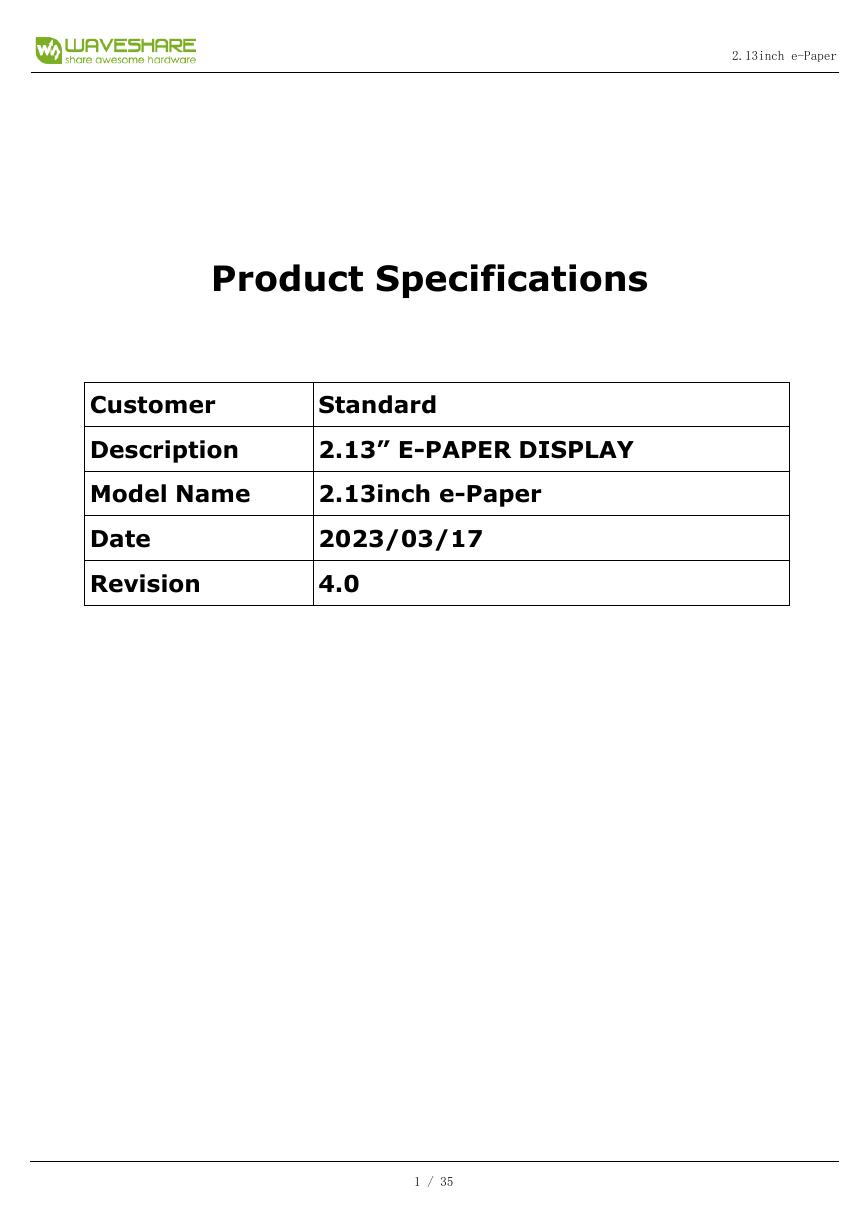
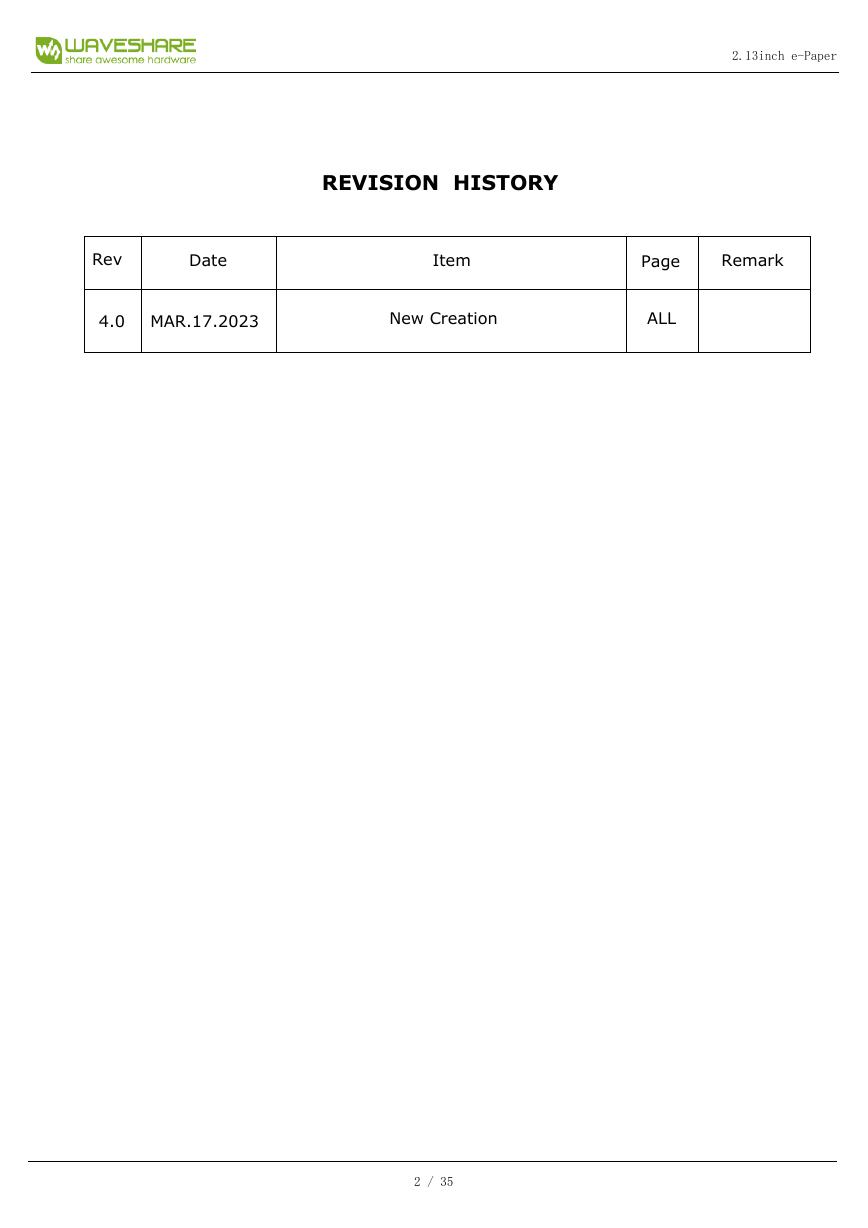
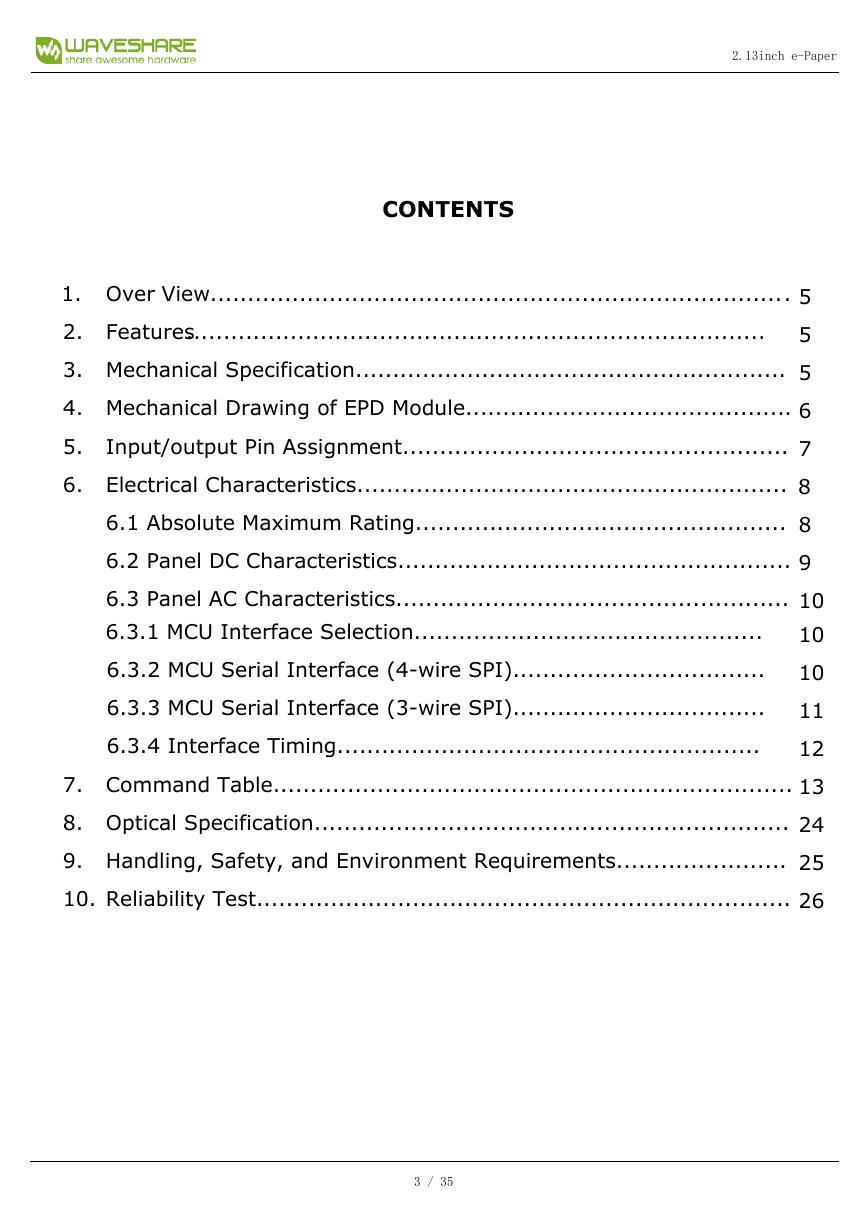
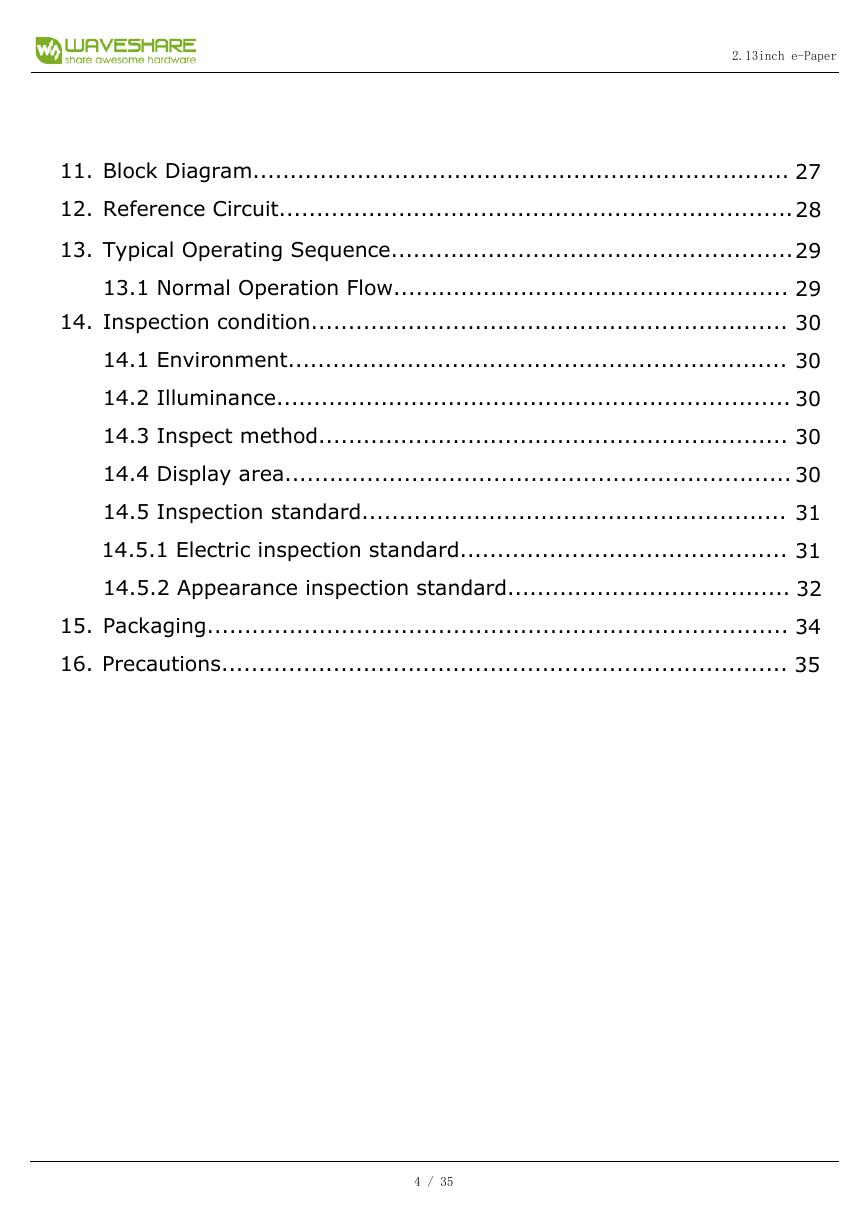
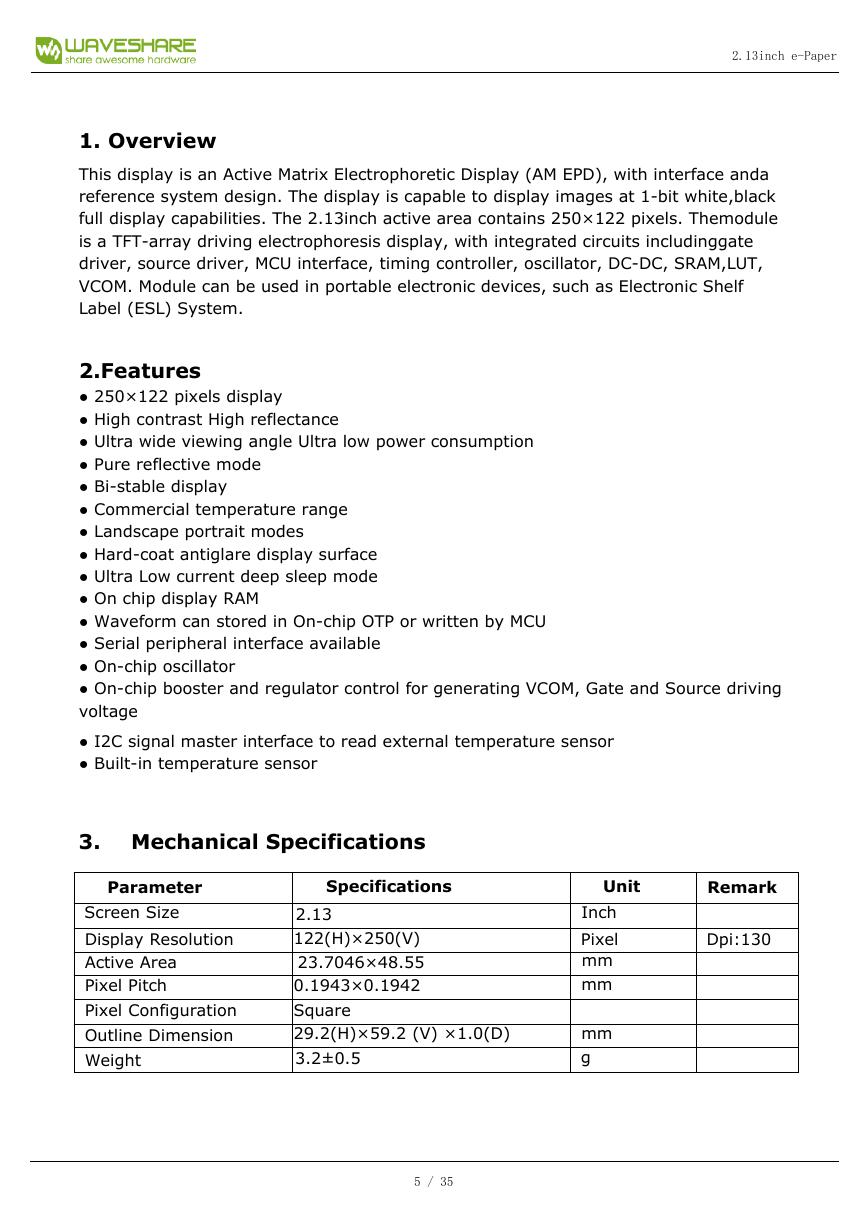
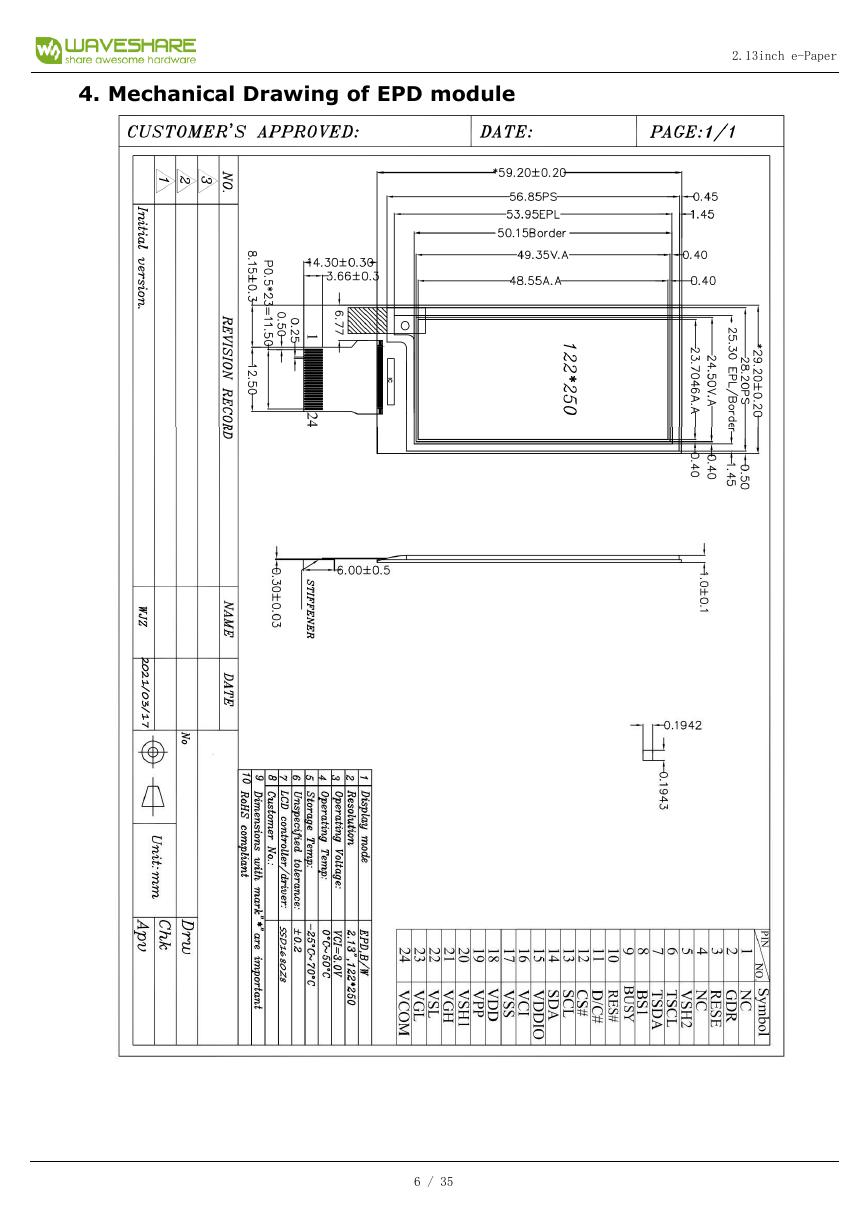

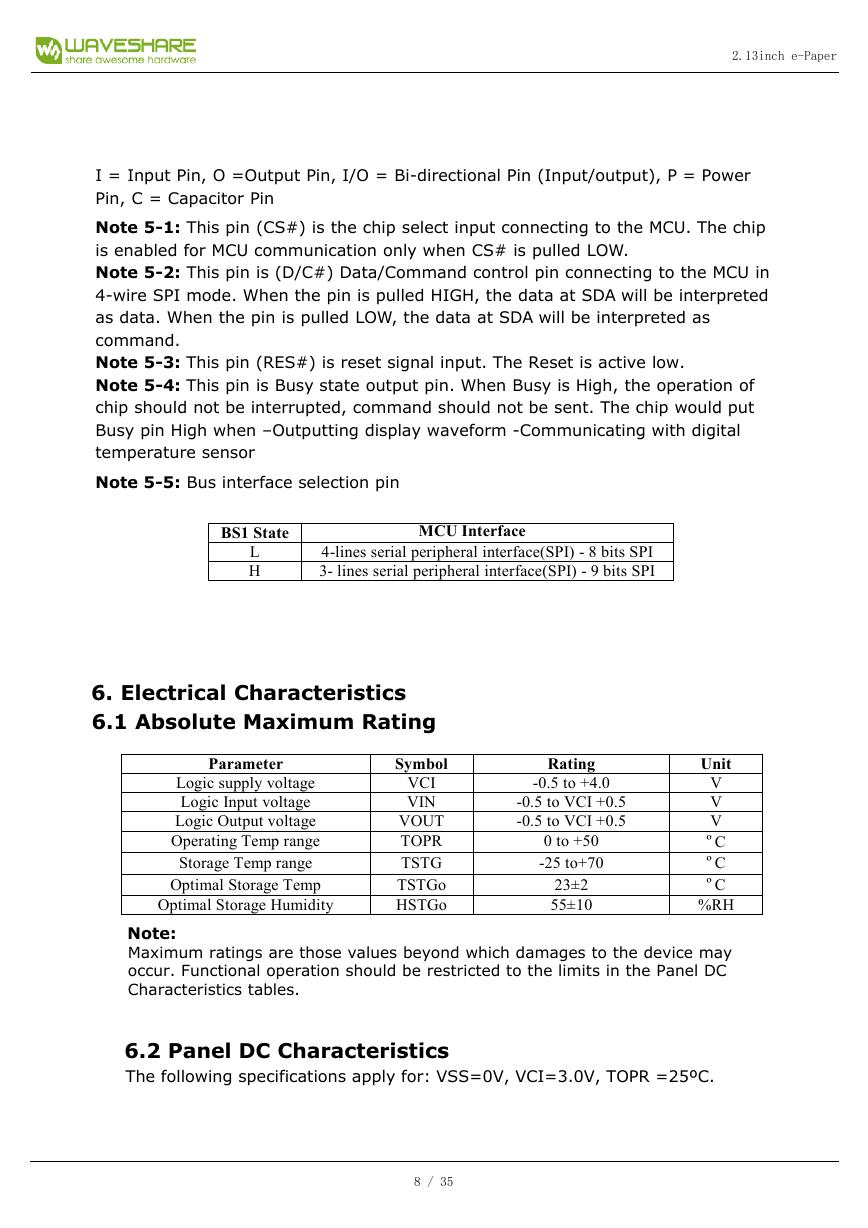








 V2版本原理图(Capacitive-Fingerprint-Reader-Schematic_V2).pdf
V2版本原理图(Capacitive-Fingerprint-Reader-Schematic_V2).pdf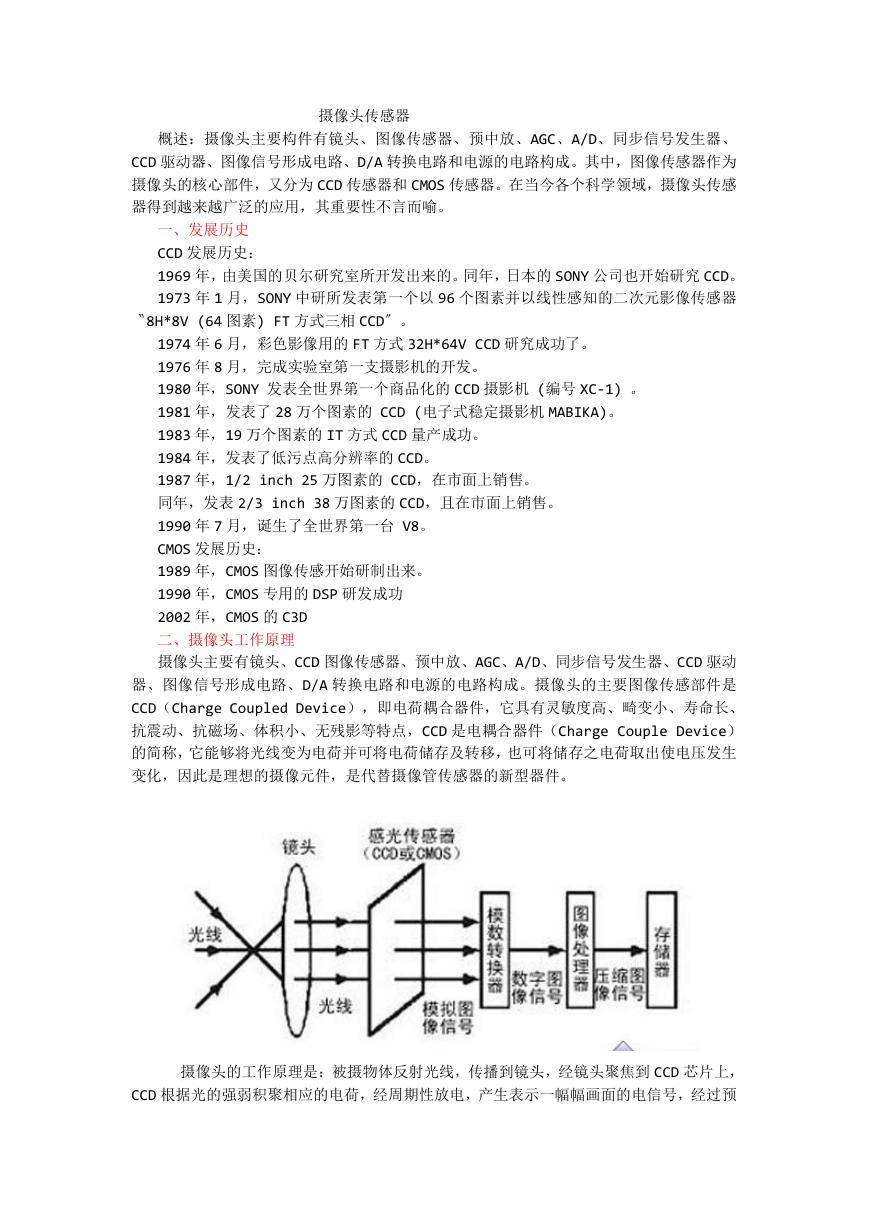 摄像头工作原理.doc
摄像头工作原理.doc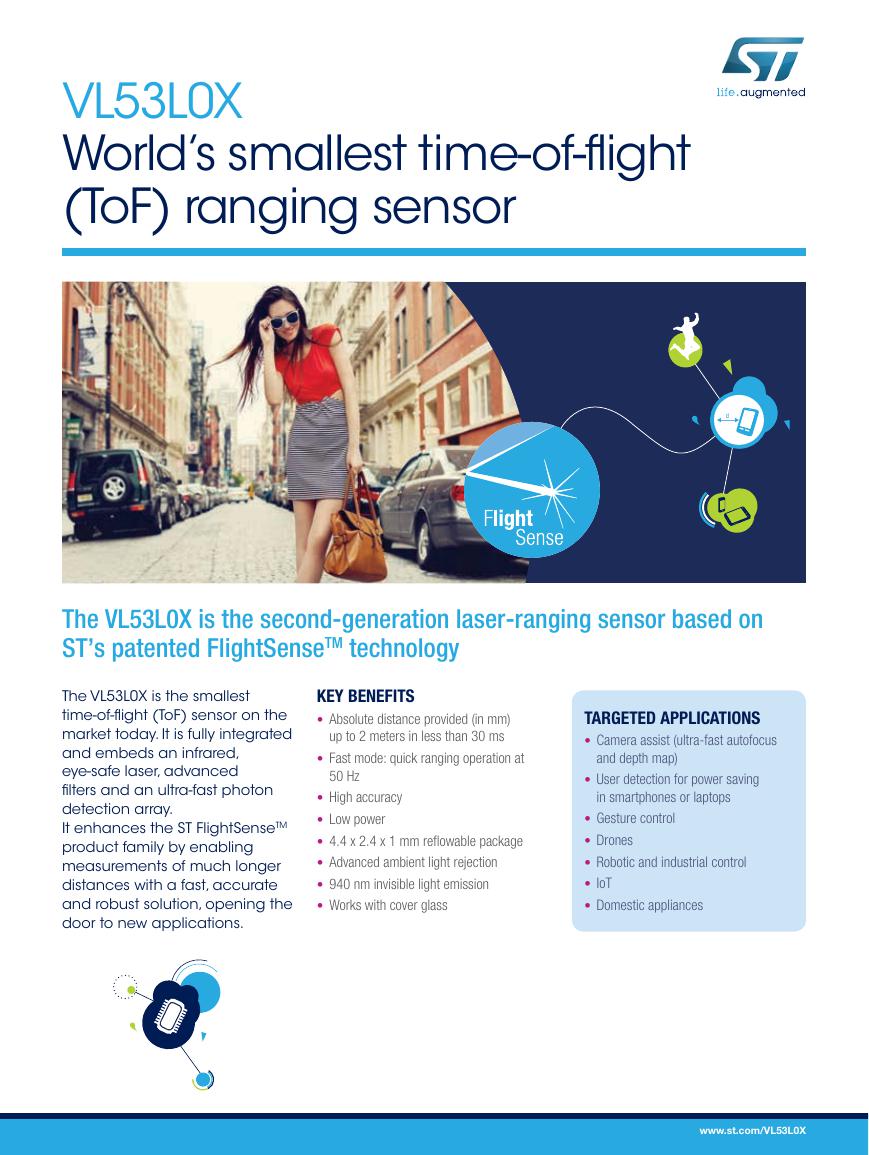 VL53L0X简要说明(En.FLVL53L00216).pdf
VL53L0X简要说明(En.FLVL53L00216).pdf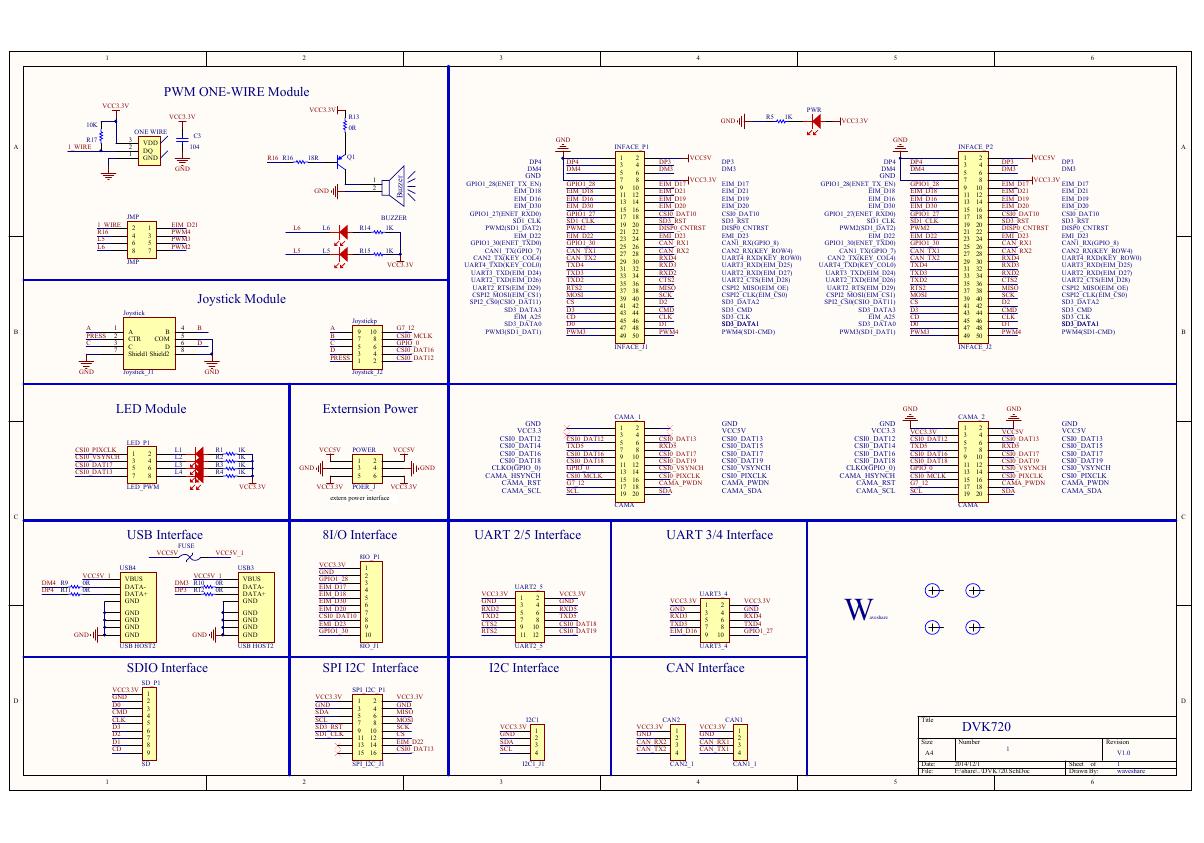 原理图(DVK720-Schematic).pdf
原理图(DVK720-Schematic).pdf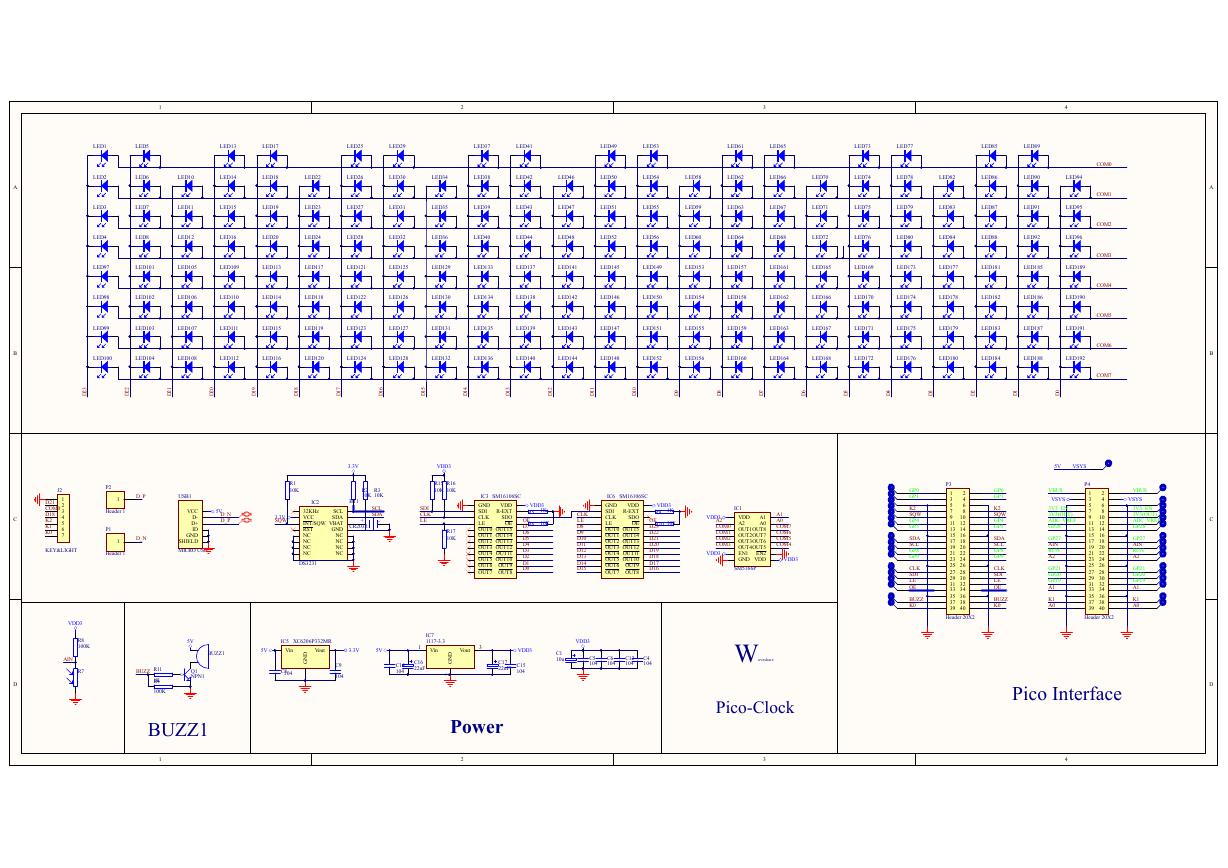 原理图(Pico-Clock-Green-Schdoc).pdf
原理图(Pico-Clock-Green-Schdoc).pdf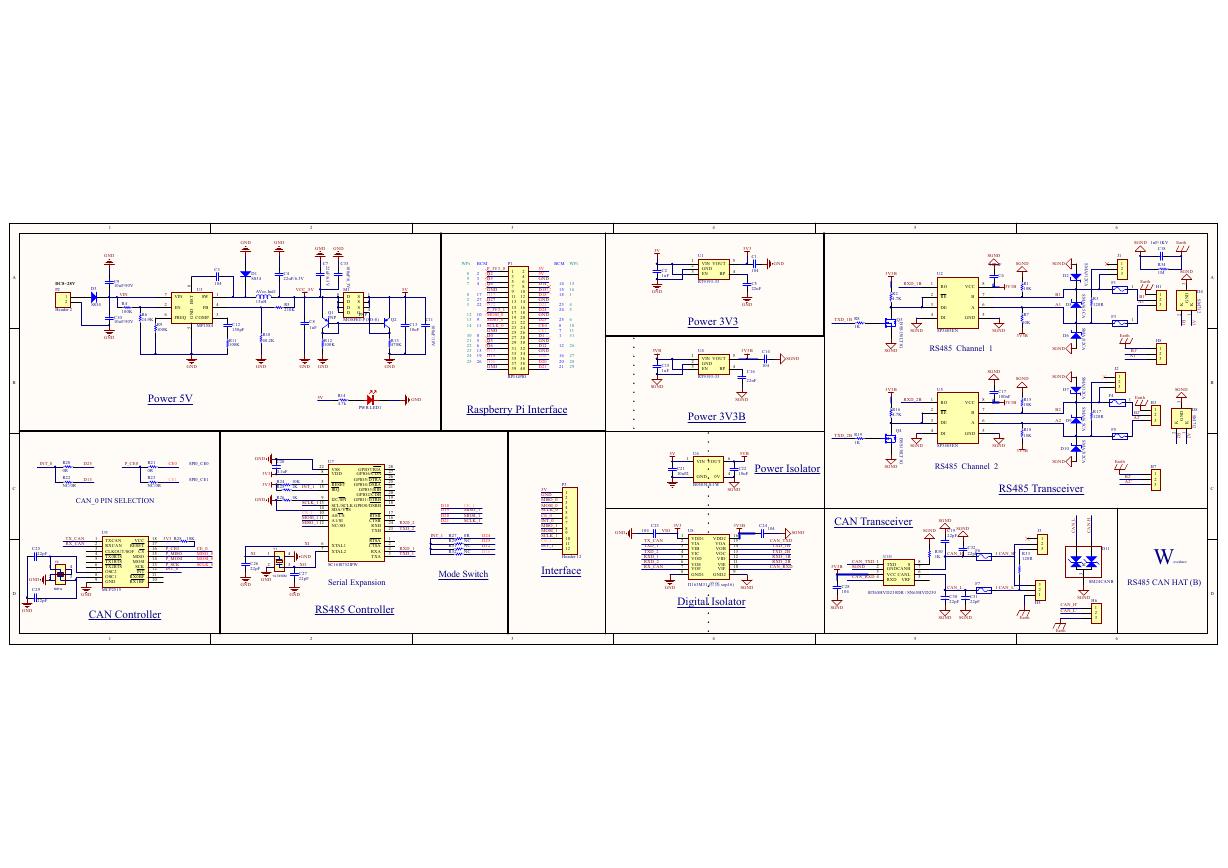 原理图(RS485-CAN-HAT-B-schematic).pdf
原理图(RS485-CAN-HAT-B-schematic).pdf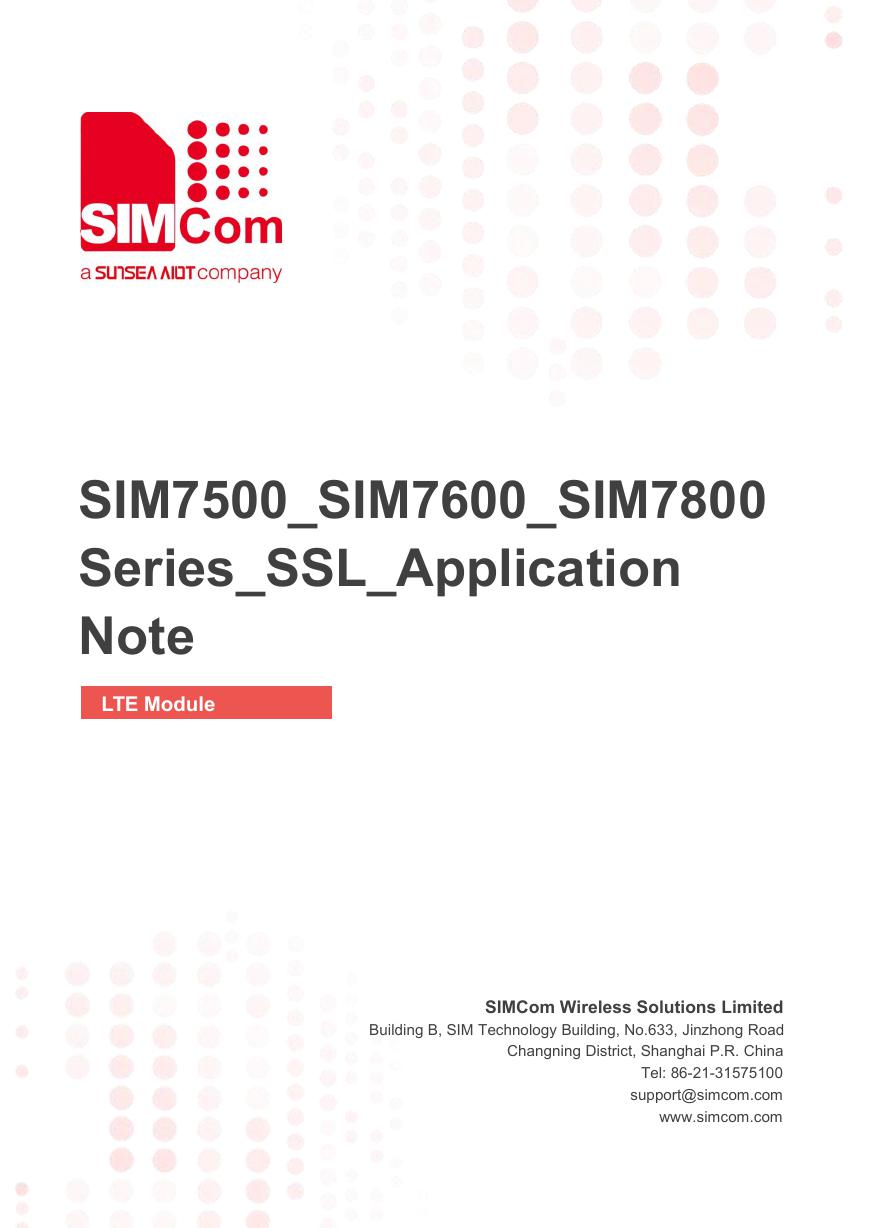 File:SIM7500_SIM7600_SIM7800 Series_SSL_Application Note_V2.00.pdf
File:SIM7500_SIM7600_SIM7800 Series_SSL_Application Note_V2.00.pdf ADS1263(Ads1262).pdf
ADS1263(Ads1262).pdf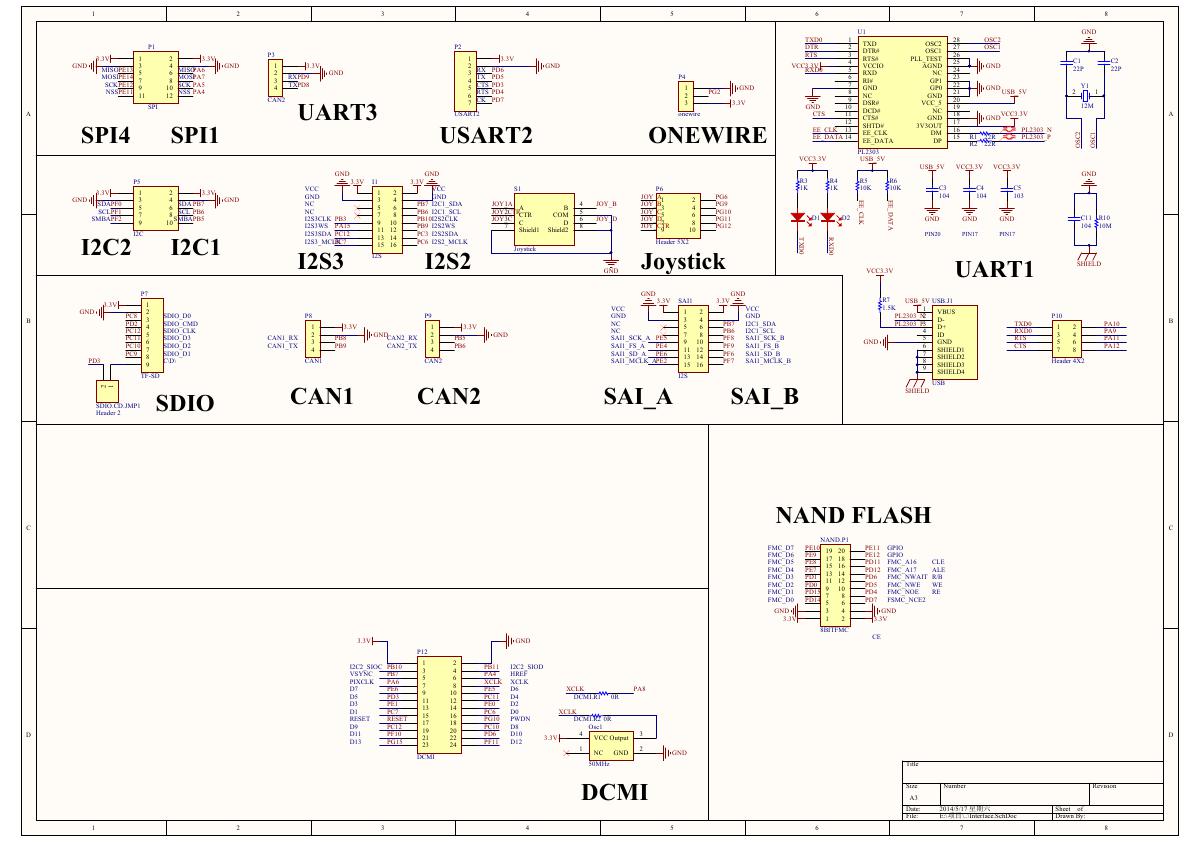 原理图(Open429Z-D-Schematic).pdf
原理图(Open429Z-D-Schematic).pdf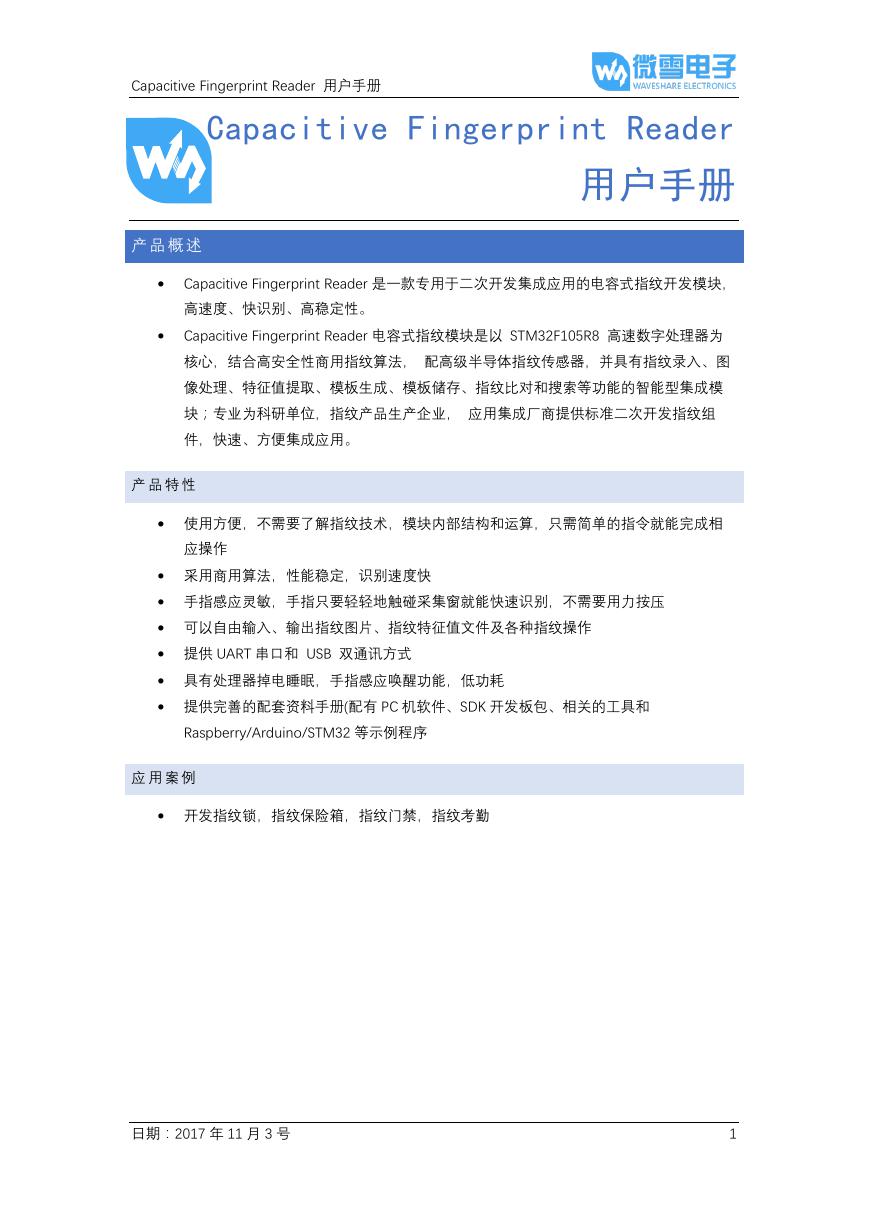 用户手册(Capacitive_Fingerprint_Reader_User_Manual_CN).pdf
用户手册(Capacitive_Fingerprint_Reader_User_Manual_CN).pdf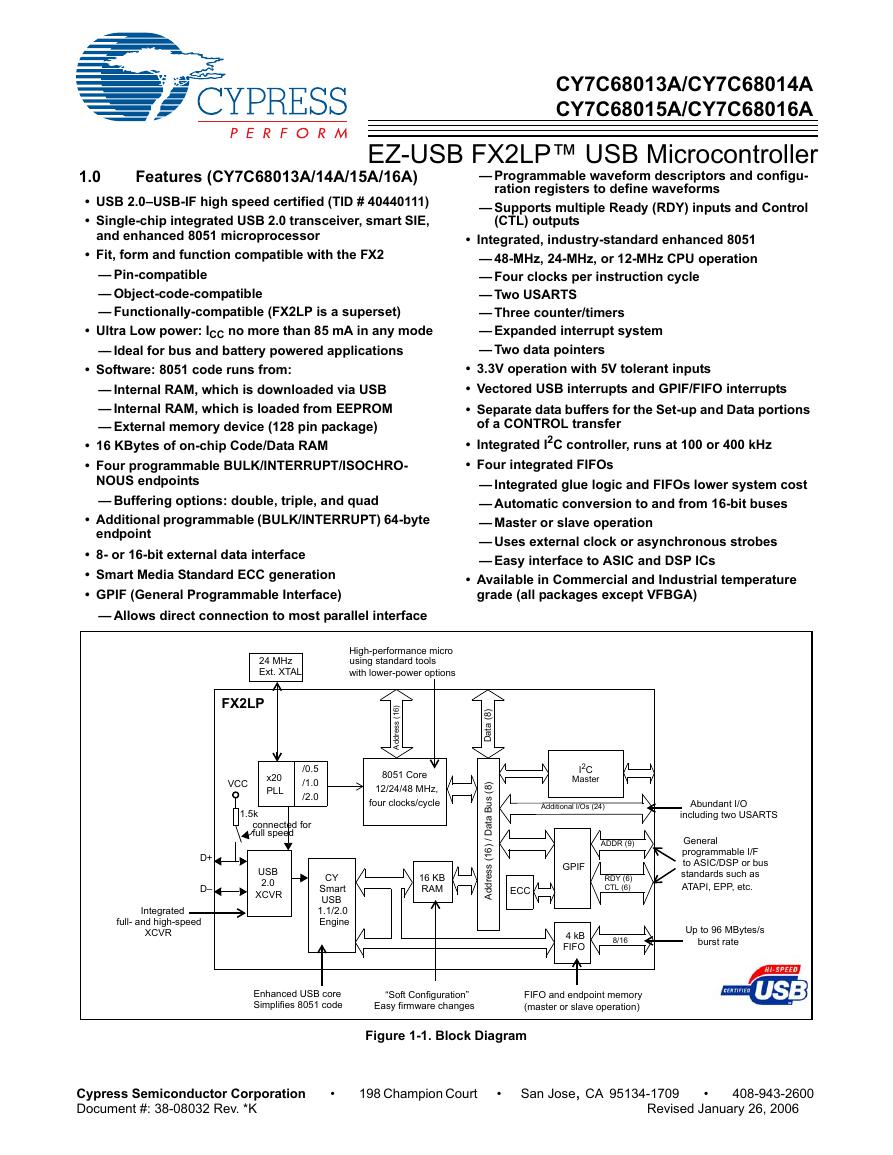 CY7C68013A(英文版)(CY7C68013A).pdf
CY7C68013A(英文版)(CY7C68013A).pdf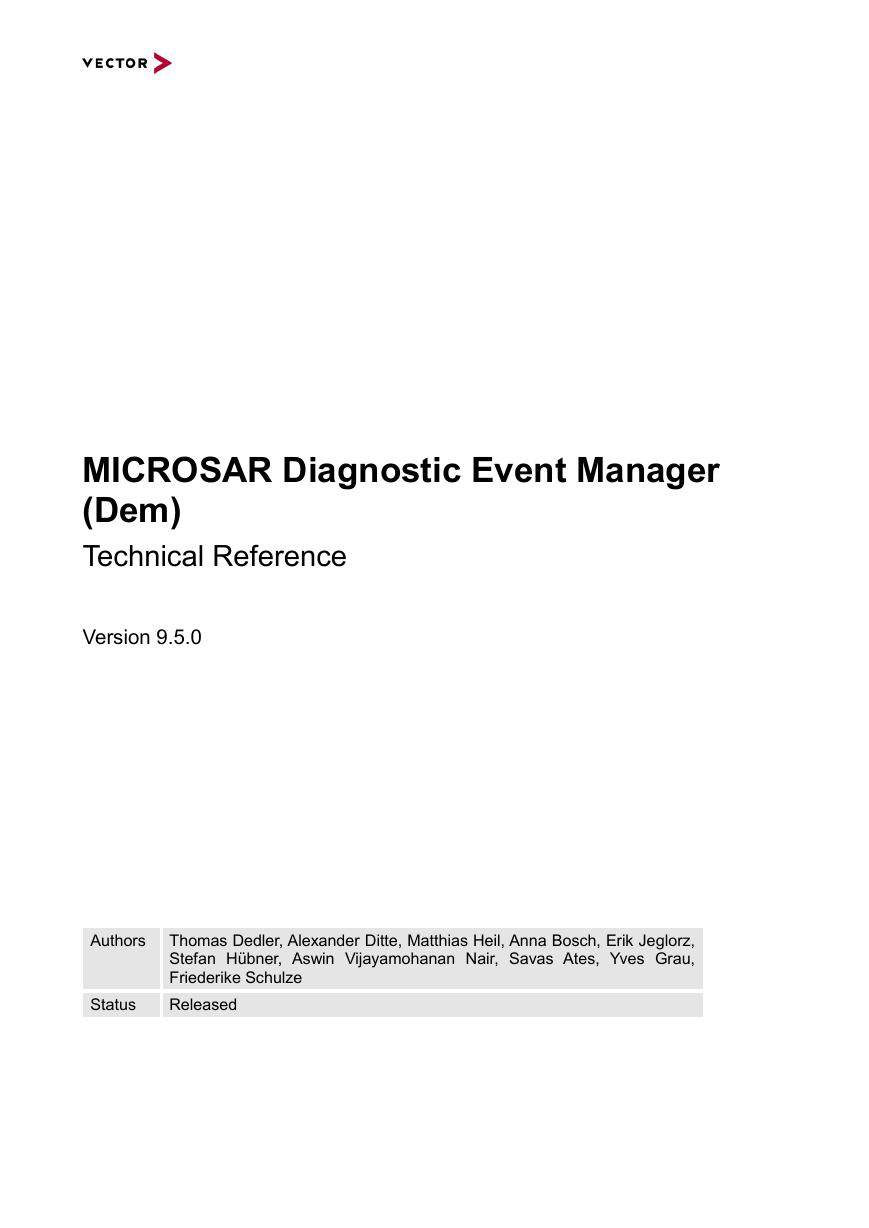 TechnicalReference_Dem.pdf
TechnicalReference_Dem.pdf